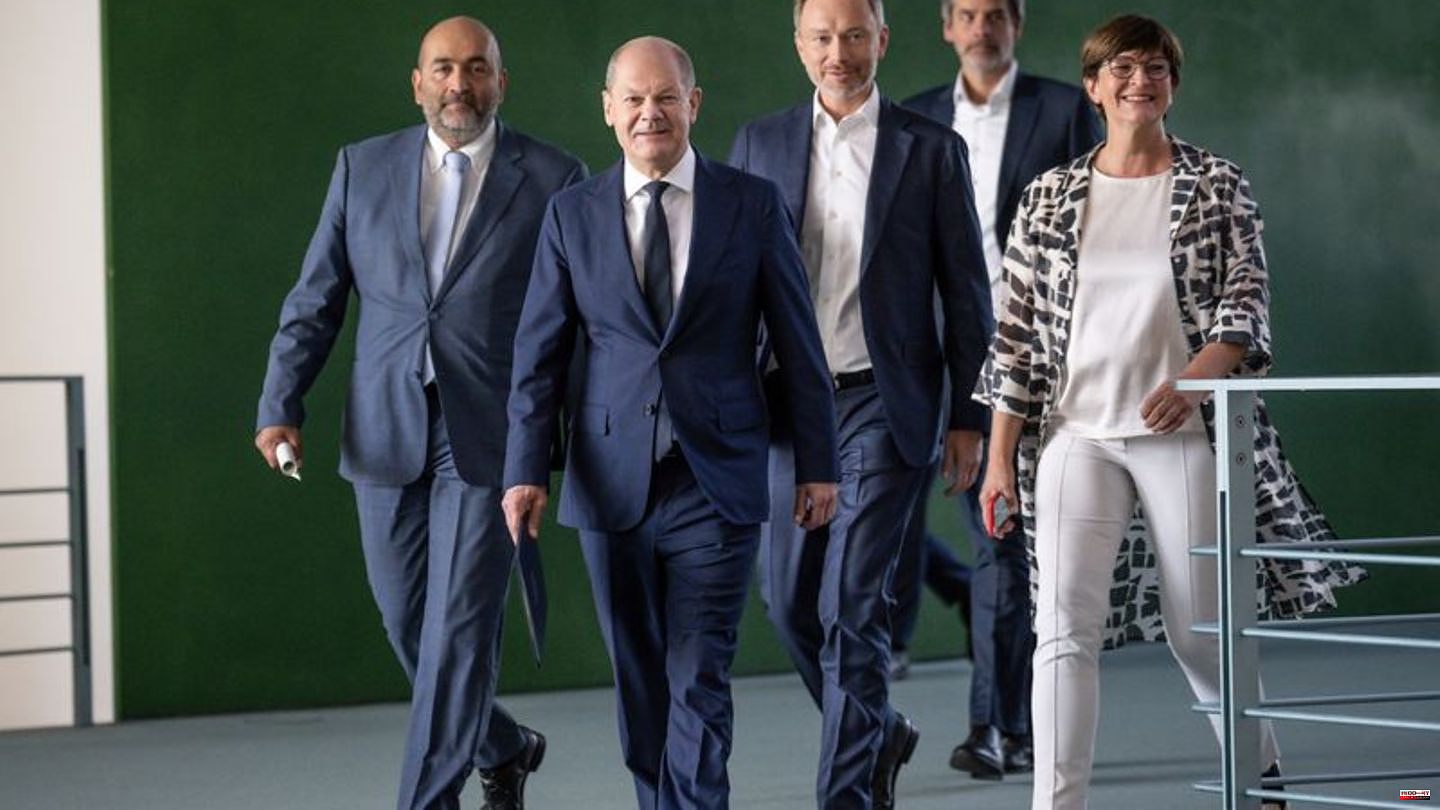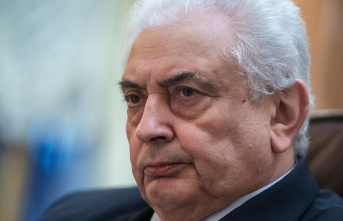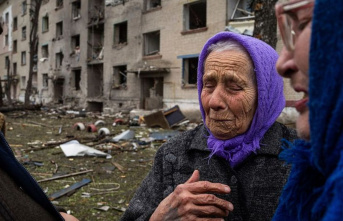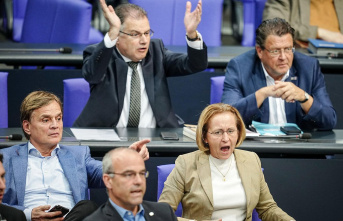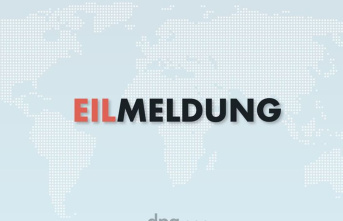Numerous experts and associations have basically praised the planned third relief package of the traffic light coalition. But there is still no lack of criticism: Industry and trade were disappointed that the package was primarily about relieving private households.
For some social organizations, however, these reliefs do not go far enough. Climate protectors describe the package as a "fatal signal"
There was also criticism from economists like Veronika Grimm, but it was more about individual measures - and then often only about the fact that there was still a lack of concrete plans. However, the targeted support for particularly stressed groups is correct, said Grimm of the "Frankfurter Allgemeine Zeitung".
Merz: You should have done more
The CDU chairman Friedrich Merz criticized the relief package as insufficient. It is true that pensioners and students are included in the energy price flat rate, said Merz on Sunday in the ARD summer interview. But whether it's really enough for those who are just above the housing benefit limit and above the social assistance rates, that has to be seen. "You should have done more for those who are just above the borders," said Merz, who is also the leader of the Union parliamentary group in the Bundestag.
He also believes that the German economy will complain massively in the next few days "that they are not being thought of. And the economy, it's not the large corporations, it's the many hundreds of thousands of small and medium-sized companies that this country keep going." These would be neglected by the coalition.
DIW: Electricity price brake "completely immature"
Ifo President Clemens Fuest spoke in the "image" of "light and shadow" in the package. The President of the German Institute for Economic Research (DIW), Marcel Fratzscher, praised individual elements in the "Augsburger Allgemeine", but mainly criticized them. "The federal government has not found a solution to the most important challenge, the limitation of electricity and gas prices," said the DIW boss. The planned electricity price brake is "completely half-baked", will only be implemented in months and follows the principle of hope.
There was also clear criticism from employers' associations: the package was "disappointing," said employers' president Rainer Dulger. It is true that the federal government absorbs social hardship. However, the government obviously lacks the courage for a new energy policy. "The expansion of the welfare state cannot be an answer to rising energy prices on the world market."
DIHK: Too little support for companies
Meanwhile, industry and trade criticized the fact that there was little help for companies in the package. Peter Adrian, President of the Association of German Chambers of Industry and Commerce (DIHK), told the Rheinische Post that the support for private households was certainly the right thing to do from a macroeconomic point of view. "The statements on the company-related measures, on the other hand, remain largely vague - and are therefore not the announced "massive" throw."
The president of the trade, Hans Peter Wollseifer, was also disappointed. It is incomprehensible that possible relief for craft businesses is only addressed with a time delay, he said. "Because we don't have time: we are now receiving more and more existential emergency calls from companies that need immediate help." Much stronger, direct and faster support would have been needed here.
DGB: package is "impressive overall"
The response from the big trade unions is more positive. DGB Chair Yasmin Fahimi described the package as "impressive overall". "The main task now remains to quickly convert the good intentions into concrete and convincing legislation." Only then will it be possible to give people security. Verdi boss Frank Werneke criticized the lack of further direct payments for people with low and middle incomes. "Instead, high earners will be relieved by the tax plans with up to 1,000 euros."
The criticism of the social organizations is similar: The SoVD described the support for pensioners as "overdue" - but there is a lack of support for people with low incomes who do not receive housing benefit. "The 300 euros energy flat rate is not enough. We need inflation money," said SoVD chairwoman Michaela Engelmeier. Ulrich Schneider, managing director of the Paritätischer Wohlfahrtsverband, said that the package would primarily correct errors in the past relief package. However, no additional targeted aid for the poorest in basic security would be launched.
Violent criticism also came from the environmental protection organization WWF. The package is counterproductive for meeting the climate targets," said Viviane Raddatz, Head of Climate and Energy Policy at the WWF. "Price caps such as the announced electricity price brake do not provide any savings incentives and send a fatal signal for the credibility of the federal government in climate protection. Just like the suspended CO2 price increase."

